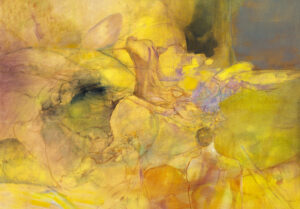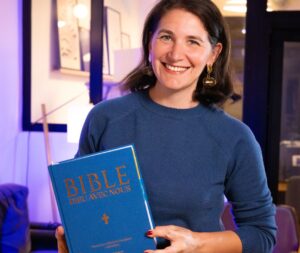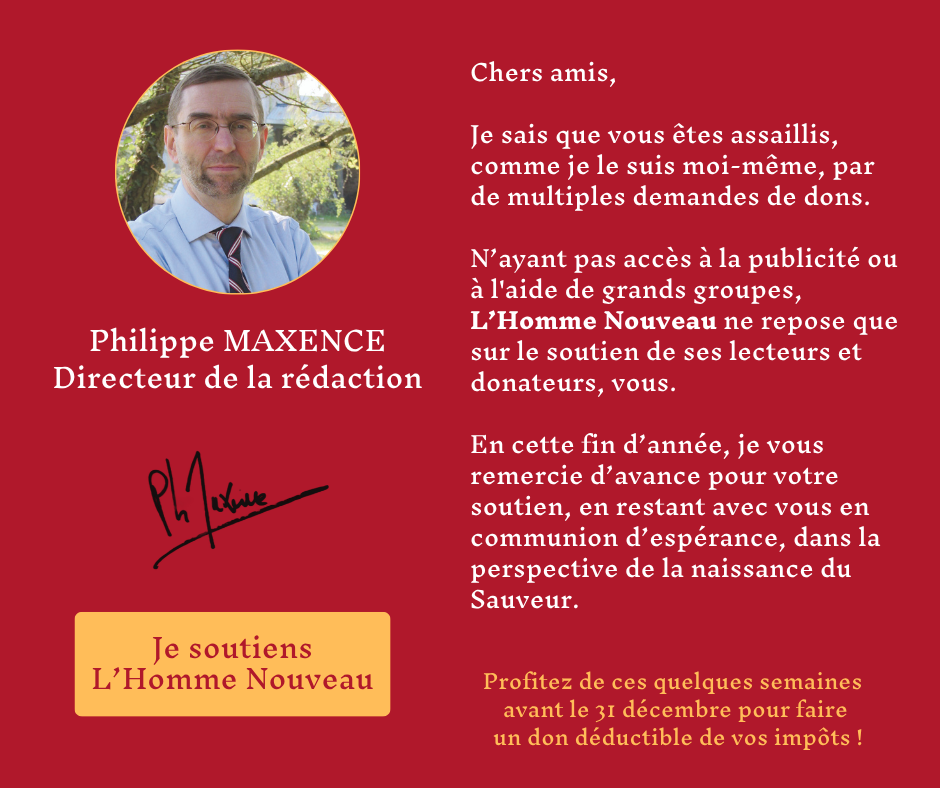Dans l’encyclique Laudato Si, le pape François avait appelé à une « conversion écologique » (n°216 à 221). C’est peu dire que d’affirmer que l’appel a été entendu : il a donné lieu à une multitude de prises de paroles et d’initiatives, promues et encouragées notamment par l’Église de France qui a fait de cette conversion écologique un des axes privilégiés de son action. Ainsi, il y a peu, lors du discours de clôture de l’assemblée plénière automnale de la Conférence des évêques de France, le dimanche 10 novembre 2019, Mgr Éric de Moulins-Beaufort lui donnait une place importante, au sein de la conversion d’ensemble qui doit être celle de l’Église de France aujourd’hui. À côté, étaient aussi mentionnés l’établissement de vraies relations avec les victimes d’abus sexuels, le renouvellement de l’Église par la synodalité et la collégialité, le dépassement de crispations sociales (foulard islamique, immigration).
On nota à cette occasion une présence nouvelle et conséquente de délégués laïcs, chaque évêque étant venu à Lourdes avec deux personnes de son diocèse : si la synodalité prenait corps, c’était à la nécessaire conversion écologique qu’on le devait, ainsi que le rapporta le président de la conférence épiscopale dans le discours déjà mentionné : « Nous sommes heureux d’avoir vécu ainsi dans une collégialité plus forte avec le pape François dans la lumière de son encyclique Laudato Sí et dans une certaine forme de synodalité en travaillant avec des représentants de tout le peuple de Dieu. »
Le label « Église verte »
Mais concrètement, qu’est-ce que cette conversion écologique ?
De cet engouement suscité par Laudato Si et de la promotion qu’en fait l’Église, le label « Église verte » est représentatif au plus haut point. Œcuménique, ce label, s’il a été créé en septembre 2017 à l’occasion des dix ans de la Journée de la création, se place dans sa présentation sur internet (egliseverte.org) sous un double patronage, la COP 21 et l’encyclique Laudato Si, toutes deux datant de 2015.
Il s’adresse aux paroisses et mouvements, plus largement à tous les groupes reconnus par le Conseil des Églises en France et – dans la logique des outils de management qui se diffusent actuellement dans le champ religieux – il se veut un outil visant à mesurer le respect vécu de la création et invitant à s’y engager davantage. L’enquête ou questionnaire – appelé « écodiagnostic » – qui préside à l’acquisition de ce label (il doit être renouvelé tous les ans) commence par un rapide volet de propositions où il est demandé si le « thème de la création » est présent dans les célébrations, les homélies et la catéchèse. C’est peu pour qualifier l’outil de chrétien ; il est bien plutôt profane, appliqué à des groupes chrétiens. La question de la qualification exacte de la conversion visée se pose alors.
D’autant plus que, dans la suite, il s’intéresse très longuement aux bâtiments (de l’isolation jusqu’au papier recyclé pour les toilettes, du compostage des déchets au stationnement des bicyclettes), au terrain (y a-t-il un jardin et de la culture de légumes et de fruits ?), à l’engagement local (projection de films, rencontre avec les élus locaux, co-voiturage, menu végétarien ou vegan, circuits courts de nourriture) et global (commerce équitable, campagne de carême du CCFD), aux modes de vie (4R : réduire, réutiliser, réparer, recycler, épargne personnelle et communautaire éthique, audit environnemental avec bilan carbone et « familles à énergie positive », prévention de la surconsommation de mails et du web en raison du coût énergétique du stockage des données informatiques). L’outil de management, dans sa dynamique, paraît bien être un instrument de conversion des communautés chrétiennes à l’écologie. Et telle semble être la signification principale, pratique essentiellement, de la conversion écologique, où l’adjectif prime.
Certes, il est bon, à toute époque, de découvrir et d’approfondir des attitudes comme la sobriété, le partage, la priorité de l’être et des relations sur l’avoir, etc. La thématique écologique peut en être, sans difficulté, l’occasion. Toutefois, ces vertus ne sont pas proprement écologiques. Elles ont, dans le christianisme, un ancrage ancien et fondamental, elles relèvent de l’ascèse et de la charité. Il y a une ambiguïté gênante à ne pas les distinguer du contexte ou des circonstances de leur promotion actuelle. Ambiguïté quand, par exemple, dans le discours de Mgr de Moulins-Beaufort, qui ne fait ici que reprendre une expression presque consacrée, on parle de « sobriété heureuse ». Ni le substantif ni l’adjectif ne pose problème, au contraire, mais on ne saurait ignorer que leur association, la sobriété heureuse, emporte avec elle les idées de Pierre Rahbi, l’agriculteur-romancier, d’origine algérienne, penseur de l’agroécologie, qui l’a popularisée si ce n’est créée : néo-ruralisme et retour à la terre, décroissance, antimondialisme – avec quoi on peut s’accorder, ou pas. Il faudra revenir sur ce ré-emploi de concepts venus d’ailleurs…
Le péché écologique
Mais la dynamique écologique actuelle dans l’Église, si elle est pratique, assez platement parfois, est tout de même irriguée en partie par un état d’esprit problématique. Une proposition de cet écodiagnostic (la D22, à laquelle on doit répondre par oui, non ou « ne savons pas encore »), d’ailleurs perdue au milieu de propositions techniques ou concrètes, mérite à cet égard d’être citée : « Notre communauté présente à Dieu dans la prière nos manquements à l’égard de la création blessée et lui demande de continuer à travers nous le chemin de libération vers la “terre promise” ».
L’homme y est comme mis en état de coupable par rapport à une création personnifiée. Cette autonomisation de « sœur terre » avait frappé à la lecture de Laudato Si. Dans cette logique, le document final du récent synode sur l’Amazonie a récemment proposé de définir un « péché écologique » comme « une action ou omission contre Dieu, son prochain, la communauté et l’environnement » (n°82), idée reprise ensuite par François : « Nous devons introduire – nous y pensons – dans le Catéchisme de l’Église catholique le péché contre l’écologie, le péché écologique contre la maison commune » ; et d’employer même le terme d’« écocide » (Discours aux participants du congrès mondial de l’Association internationale de droit pénal, 15 novembre 2019).
Jean-Paul II qui, le premier des papes semble-t-il, avait utilisé l’expression de conversion écologique (audience du 17 janvier 2001), parlait certainement du péché, mais d’un péché contre Dieu, puisque l’homme des sociétés modernes, en impie qui méconnaît la sagesse et la gloire divines manifestées dans la création et révélée dans la Sainte Écriture, abuse de la gérance qui lui a été confiée et trahit ainsi la royauté divine qui en est la source. Rien que de très conforme à la théologie classique de la création, créée pour l’homme, qui la soumet et la domine (cf. Gn 1, 28).
L’accent est autre au commencement de l’encyclique : « C’est pourquoi, parmi les pauvres les plus abandonnés et maltraités, se trouve notre terre opprimée et dévastée, qui “gémit en travail d’enfantement” (Rm 8, 22) » ; puis quand est avancée cette opinion, tirée de Teilhard de Chardin : « L’aboutissement de la marche de l’univers se trouve dans la plénitude de Dieu, qui a été atteinte par le Christ ressuscité, axe de la maturation universelle (…) La fin ultime des autres créatures, ce n’est pas nous. Mais elles avancent toutes, avec nous et par nous, jusqu’au terme commun qui est Dieu, dans une plénitude transcendante où le Christ ressuscité embrasse et illumine tout » (n°83). Ce qui a permis au philosophe Fabien Revol, lors de l’assemblée des évêques, dont nous avons parlé, d’affirmer : « Nous devons retrouver le sens des valeurs propres et intrinsèques des créatures. Elles ne sont pas faites au service de l’être humain. Elles ont une dignité propre. »
S’accorder aux idées du monde
D’approximation en glissement, la théologie de la création a pu être associée, lors du synode sur l’Amazonie, à des pensées animistes : qui n’a entendu parler de la Pachamama ? Dans les pays occidentaux, elle fraie avec des pensées holistiques, gnostiques, celles de l’écologie radicale (deep ecology). Une égalité ou une similitude est alors posée entre la Création, sœur notre mère la Terre (saint François d’Assise) et la déesse mère Gaïa. La nature, non seulement acquiert une pleine autonomie, mais l’homme devient l’accusé, il est le coupable, non par son mauvais usage des biens, mais constitutivement. Si la pensée est radicale, s’assume comme telle et par là demeure marginale, elle n’en gagne pas moins en influence : les agressions violentes contre les bouchers ou la dénonciation de toute natalité trouvent des oreilles complaisantes. Plus sourdement, s’installe une forme de consensus sur la culpabilité a priori de l’homme contre une réalité autonome innocente, la nature.
Le sujet de la théologie de la création mériterait pourtant une réflexion philosophique et théologique conséquente : il relève aussi d’une morale des vertus, voire même d’une mystique (à la manière, par exemple, de saint Bonaventure traduisant l’expérience franciscaine dans le schéma de la triple voie purificatrice, illuminative et unitive). Mais traité comme il l’est aujourd’hui, il relève aussi de l’histoire des idées et plus précisément invite à s’interroger ainsi : l’accent mis sur l’écologie dans le discours de l’Église ne ressemble-t-il pas à d’autres reprises d’idées du monde, voire à la mode, dans un désir de rapprochement, de dialogue ? Ainsi, Jean-Paul II, au début de son pontificat, s’efforça-t-il de démontrer que les droits de l’homme faisaient partie du patrimoine de l’Église, que leur source véritable était l’évangile : l’Église, en dialogue avec le monde, pouvait donner au monde une vigueur nouvelle à ce qui leur était commun. Auparavant, dans la première moitié du XXe siècle, de nombreuses personnalités et organisations, dont les plus emblématiques furent les mouvements d’action catholique et les prêtres ouvriers, accueillirent la main tendue des marxistes, et pas seulement dans le domaine pratique. Peut-être faudrait-il même remonter jusqu’au Ralliement à la République imposée par Léon XIII aux catholiques français.
Les accents furent divers. Mais ces tentatives n’avaient-elles pas en commun une illusion : celle qu’une proximité sémantique et d’éventuelles collaborations pratiques pouvaient conduire à une convergence des pensées, à une unité d’esprit et de cœur évangélisatrice des incroyants et pacificatrice des rapports sociaux ? Léon XIII s’avertissait lui-même, si l’on peut dire, dans ses encycliques antilibérales ; Madeleine Delbrêl fut de celles et de ceux qui contestèrent la possibilité d’une union bénéfique avec les communistes. N’a-t-il pas fallu attendre ces dernières années, avec les évolutions sociétales légalisées, pour que se dessillent les derniers yeux sur l’incompatibilité de l’évangile avec l’idéologie des droits de l’homme ?
En ira-t-il autrement, en termes de pensée, de conversion au Christ, de paix, avec le mouvement actuel ?
In favor of a green church
In the encyclical Laudato Si, pope Francis had called for a “green conversion” (n.216 to 221). The call was heard, to say the least, as it gave in to a multitude of spoken interventions, promoted and encouraged notably by the Church in France which made this green conversion one of the main axis of its action. In this way, a short time ago, during the closing speech of the fall plenary assembly of the French bishops Conference, Sunday 10 November 2019, Mgr Éric de Moulins-Beaufort gave it a lot of importance as part of the overall conversion which must be the one of the Catholic Church in France today. Next to that, were also mentioned the establishment of true relation with the victims of sexual abuse, the renewal of the Church through synodality and collegiality, and overcoming social tensions (islamic head scarf, immigration).
On this occasion, one noted the new and substantial presence of lay delegates, every bishop having come to Lourdes with two persons of its diocese: if the synodality took shape, it would be due to the necessary conversion to ecology, just as the president of the episcopal conference said in the discourse aforementioned: “We are happy to have lived like this in a stronger collegiality with pope Francis, in the light of his encyclical Laudato Si and in a certain type of synodality, by working with the representatives of all of the people of God”.
The “green Church” label
But, in reality, what is this green conversion about?
Out of this enthusiasm for Laudato Si and out of this promotion made by the Church, the label “Green Church” is most typical. Ecumenical, this label, if it was created in September 2017 on the occasion of the 10th year anniversary of Creation day, presents itself on the internet (egliseverte.org, meaning green church) under a double patronage, both COP 21 and the encyclical Laudato Si, both dating back from 2015.
It caters to parishes and movements, more widely to all groups recognized by the Council of Churches in France and – in the logic of management tools which are becoming more present in the religious field – it intends to be a tool having for a goal to evaluate the true respect of creation and to incite people to be more involved. The survey or query – called “eco-diagnostic” – which presides to the acquisition of this green label (it must renewed every year), starts by a quick pick of propositions questioning whether the “theme of creation” is present in the celebrations, homilies and catechesis. With that, it is hard to qualify the tool of Christian; rather, it is a secular tool that is being applied to Christian groups. The question of the exact kind of targeted conversion is then an issue.
Especially since, thereafter, the survey is largely concerned with buildings (from the insulation up to the recycled paper for bathrooms, from compost pile to bicycle racks), grounds (is there a garden and are vegetable and fruits grown?), local activism (projection of movies, meeting with local representatives, car-pooling, vegetarian menu or vegan, short food producer to consumer channel) global activism (fair trade, lenten campaign of the Catholic Committee against Hunger and for Development – CCFD), and ways of life (the 4 “R”: Reduce, Reuse, Repair, Recycle; plus, personal and ethical community savings, environmental audit including carbon assessment and “energy positive families”, prevention of the overconsumption of emails and internet in reaction to the energetic cost of computer data storage). The management tool, in its dynamic, appears to be for Christian communities an instrument of conversion to ecology. And this very well seems to be the principal intension of this conversion to ecology, mainly practical, where ecology takes all precedence.
Certainly, it is good, whatever the times we live in, to discover and to further acquired attitudes such as temperance, sharing, priority of being and of relations versus having, etc. The ecological thematic can be, without difficulty, the opportunity for that. Though, its virtues are not properly ecological. In Christianity, they have ancient and fundamental ties and fall under asceticism and charity. There is an embarrassing ambiguity when they are not differentiated from the context or circumstances in which they are currently being promoted. Ambiguity when, for example, in a speech, Mgr de Moulins-Beaufort, using an almost established expression, speaks of “joyful simplicity”. In this expression, either the substantive nor the adjective poses an issue, to the contrary, but it can’t be ignored that their association, the joyful simplicity, carries the ideas of Pierre Rahbi, the Algerian novelist-farmer, thinker of the farming-ecology movement, and who has, if not created, definitely popularized the expression: neo-ruralism and back to the land, de-growth, anti-globalism – any of which themes we could agree or disagree. We will have to, as some point, reconsider this reuse of concepts that came a bit from afar…
Environmental related sins
But the present environmental dynamic in the Church, if it is practical, though rather plain sometimes, is nonetheless supplied, in parts, by a problematic state of mind. One proposition of this eco-diagnostic (prop. D22, which allow for “Yes”, “No”, or “Not sure yet” answers), actually lost in the middle of technical or concrete propositions, deserves being quoted: “In prayer, our community presents to God our failure in regards to the wounded creation and ask Him to continue through us the path of liberation towards the “promise land” “. It is like Man is recognized as guilty in relation to a personified creation. This empowerment of “sister Earth” had striked a few at the reading of Laudato Si. In this logic, the final document of the recent synod on the Amazon has recently proposed to define an “eco-sin” as an “action or omission” against God, our neighbor, the community and the environment” (n,82), idea raised again by Francis: “We must introduce – we are thinking about it – in the Catechism of the Catholic Church the sin against the environment, the eco-sin against the common house”; and to employ even the term of “ecocide” (Speech to the participants of the World Congress of the International Association of Penal Law, 15 November 2019).
John Paul II, the first pope so it seems, who had used the expression of eco-conversion (audience of 17 January 2001), certainly spoke of sin, but of a sin against God, since the man of modern societies, an impious man who neglects wisdom and the divine glory manifested in the creation and revealed in the Holy Scripture, abuses the management which was entrusted to his care and, thus, the divine kingdom of which it is the source. Nothing different from a classic theology on creation, created for man, placed under his dominion and submission (cf. Gn 1,28).
The emphasis is rather different at the beginning of the encyclical: “This is why, among the poor the most abandoned and mistreated, our oppressed and devastated land is, which groans “as in the pains of childbirth” (Rm 8,22); also different it is when the following opinion is put forward, taken from Teilhard de Chardin: “The ultimate destiny of the universe is in the fullness of God, which has already been attained by the risen Christ, the measure of the maturity of all things (…) The ultimate purpose of other creatures is not to be found in us. Rather, all creatures are moving forward with us and through us towards a common point of arrival, which is God, in that transcendent fullness where the risen Christ embraces and illumines all things” (n. 83). This has allowed the philosopher Fabien Revol, during the assembly of the bishops, to affirm: “We must find again the sense of the proper and intrinsic values of creatures. They are not made to serve human beings. They have their own dignity.”
To be in harmony with the ideas of the world
From approximations to slips, creation theology was associated, during the synod on the Amazon, to animist beliefs: who has not heard about the Pachamama? In the Western countries, it goes along with holistic and gnostic theories, those of radical ecology (deep ecology, as it is called). An equality or a similitude is then established between Creation, our sister mother Earth (saint Francis of Assisi) and the mother goddess Gaïa. Nature, not only acquires a full autonomy, but man becomes the one to blame, he is guilty, not because of his bad usage of the goods but constitutively. If the thinking is radical, and thinks of itself as such and because of that remains marginal, nonetheless it grows to become more influential: violent aggressions against butchers or statements against having children eventually find complaisant ears. More secretly, a consensus find its existence based on the apparent culpability of man against an innocent autonomous reality, Nature.
The subject of Creation theology would deserve yet a coherent philosophical and theological reflection: it falls within a moral of virtues, eventually even a mystic (in the manner of, for example, saint Bonaventure translating the Franciscan experience in the scheme of the triple way: purgative, illuminative and unitive). But addressed as it is today, it also falls within the history of ideas and more precisely invites us to wonder: the emphasis put on ecology in the discourse of the Church, doesn’t it resemble the covers of other worldly ideas, eventually fashionable, in a desire to bring the Church closer and into a dialogue? Thus, John Paul II, in the beginning of his pontificate strived to show that the Human rights were part of the Church, that their true source was the gospel: the Church, in dialogue with the world, could give to what was common to both a new vigor. Before, in the first half of the XXth century, many personalities and organizations, of which the most emblematic were the catholic action movements and worker-priests, welcomed with open hands marxists, and not just in regards to practical matters. Maybe, we should go as far back as the “Ralliement” to the Republic imposed by Leo XIII to French Catholics.
In that time, a variety of emphases were made. But didn’t these tentatives have in common an illusion: one that a semantic proximity and potential practical collaborations could lead to a convergence of thoughts, to an evangelist unity of spirit and heart of the non-believers and also a pacifying unity of social relationships? Leo XIII would warn himself, if you will, in his anti-liberal encyclicals; Madeleine Delbrêl was one of the men and women who contested the possibility of a beneficial union with the communists. Didn’t we have to wait till recent years, with the legalized social evolutions, to finally come to understand the incompatibility between the gospel and the ideology of human rights?
Will it evolve any differently in terms of thinking, of conversion to Christ and of peace, with the present movement?
Father Jean-Marie Perrot
Per una Chiesa verde
Nell’enciclica Laudato si’, Papa Francesco chiedeva una « conversione ecologica » (nn. 216-221). Il suo appello è stato ben recepito: ha dato vita a una moltitudine di discorsi e iniziative, promossi e incoraggiati in particolare dalla Chiesa di Francia, che ha reso questa conversione ecologica uno degli assi privilegiati della sua azione. Così, poco tempo fa, durante il discorso di chiusura dell’assemblea plenaria autunnale della Conferenza Episcopale di Francia, domenica 10 novembre 2019, il vescovo Éric de Moulins-Beaufort ha collocato la conversione ecologica in una posizione importante nel processo di conversione complessiva che dovrà operare la Chiesa francese di oggi. Oltre a questo, ha parlato anche della necessità di instaurare di rapporti reali con le vittime di abusi sessuali, del rinnovamento della Chiesa attraverso la sinodalità e la collegialità, e del superamento delle tensioni sociali (velo islamico, immigrazione).
In quell’occasione si è fatta inoltre notare una nuova e coerente presenza di delegati laici, dato che ogni vescovo venuto a Lourdes ha portato con sé due persone della sua diocesi: il fatto che la sinodalità stesse prendendo forma, era da ascrivere alla necessità della conversione ecologica, come ha riferito il presidente della conferenza episcopale nel discorso già citato: « Siamo felici di aver vissuto in questo modo in una collegialità più forte con Papa Francesco alla luce della sua enciclica Laudato si’ in una certa forma di sinodalità potendo lavorare con i rappresentanti di tutto il popolo di Dio. »
Il marchio « Chiesa verde »
Ma cos’è in concreto questa conversione ecologica?
Il marchio « Chiesa verde » è altamente rappresentativo dell’entusiasmo suscitato dalla Laudato si’ e della promozione che ne fa la Chiesa. Si tratta di un marchio ecumenico. Creato nel settembre 2017 in occasione del decimo anniversario della giornata della creazione, nella sua presentazione su internet (egliseverte.org) si avvale di un doppio patrocinio: la COP 21 e l’enciclica Laudato si’, entrambi risalenti al 2015.
Si rivolge a parrocchie e a movimenti, e più in generale a tutti i gruppi riconosciuti dal Consiglio delle Chiese di Francia e, in linea con gli strumenti di gestione diffusi attualmente in campo religioso, vuole diventare lo strumento per misurare il rispetto verso il creato e per invitare le persone ad impegnarsi maggiormente. Il questionario, chiamato « ecodiagnosi », che è il presupposto per l’acquisizione del marchio (che poi dovrà essere rinnovato ogni anno), inizia con una rapida sezione di domande per verificare se il « tema della creazione » sia presente nelle celebrazioni, nelle omelie e nelle catechesi. Questo è poco per qualificare lo strumento come cristiano; si tratta piuttosto di uno strumento laico applicato ai gruppi cristiani. Si pone quindi la questione dell’esatta qualificazione di questa conversione finalizzata (ecologica).
Tanto più che, nella parte successiva, si sofferma a lungo sugli edifici (dall’isolamento energetico alla carta riciclata per i servizi igienici, dal compostaggio dei rifiuti fino al parcheggio delle biciclette), sul terreno (c’è un orto? si coltivano frutta e ortaggi?), all’impegno locale (proiezione di film, incontri con i rappresentanti eletti nelle amministrazioni locali, covetturaggio, menù vegetariani o vegani, alimentazione a chilometro zero) e globale (commercio equo e solidale, campagna di sacrificio quaresimale della CCFD – Terre solidaire), agli stili di vita (le famose R: ridurre, riutilizzare, riparare, riciclare, risparmio etico personale e comunitario, monitoraggio ambientale con impronta di carbonio e « famiglie di energia positiva », prevenzione di produzione eccessiva di e-mail e di uso del web a causa del costo energetico dell’archiviazione dei dati informatici). Lo strumento di gestione di questo marchio, nella sua dinamica, sembra essere uno strumento di conversione all’ecologia delle comunità cristiane. E questo forse è il significato principale, essenzialmente pratico, della conversione ecologica dove l’aggettivo risulta avere la precedenza.
In ogni epoca è sicuramente un bene scoprire e approfondire atteggiamenti come la sobrietà, la condivisione, la priorità dell’essere e delle relazioni rispetto all’avere, e così via. La tematica ecologica può essere, senza difficoltà, un’opportunità per questo tipo di approfondimento. Tuttavia, tali virtù non sono strettamente ecologiche. Esse hanno infatti un antico e sostanziale ancoraggio nel cristianesimo, sono una questione di ascetismo e di carità. C’è un’ambiguità imbarazzante nel non distinguerle dal contesto o dalle circostanze della loro promozione attuale. Ambiguità quando, ad esempio, nel discorso del vescovo de Moulins-Beaufort, il quale non fa altro che riutilizzare un’espressione ormai resa quasi sacra, si parla di « felice sobrietà ». Né il sostantivo né l’aggettivo pongono un problema, al contrario, ma non si può non considerare il fatto che il mettere insieme la felice sobrietà, porta con sé le idee di Pierre Rahbi, il contadino-filosofo di origine algerina, pensatore dell’agroecologia, che l’ha resa popolare se non l’ha addirittura creata: neoruralismo e ritorno alla terra, decrescita, anti-globalismo – con cui si può essere o meno d’accordo. Dovremo tornare su questo riutilizzo di concetti che vengono da contesti lontani…
Il peccato ecologico
Ma la dinamica ecologica attuale della Chiesa, pur essendo pratica anche se talvolta in modo piuttosto piatto, è comunque parzialmente intrisa di uno stato d’animo problematico. Merita di essere citata a questo proposito una delle domande di questa « ecodiagnosi » (D22, alla quale si deve rispondere sì, no o « non so ancora »), peraltro persa in mezzo a proposizioni tecniche o più pratiche, « La nostra comunità presenta a Dio nella preghiera le nostre mancanze nei confronti della creazione ferita e gli chiede di continuare attraverso di noi il cammino di liberazione verso la « terra promessa » ».
L’uomo risulta in una condizione di colpa in relazione ad una visione personificata della creazione. Questa responsabilizzazione di « sorella terra » ci aveva colpito quando abbiamo letto la Laudato Si’. Seguendo questa logica, il documento finale del Sinodo sull’Amazzonia ha recentemente proposto di definire il « peccato ecologico » come « un’azione o un’omissione contro Dio, contro il prossimo, la comunità e l’ambiente » (n. 82), idea poi ripresa da Francesco : « Stiamo pensando di introdurre nel catechismo della Chiesa cattolica – ha annunciato – il peccato ecologico, il peccato contro la casa comune »; e anche usare il termine « ecocidio » (Discorso ai partecipanti al Congresso mondiale dell’Associazione Internazionale di Diritto Penale, 15 novembre 2019).
Giovanni Paolo II, che sembra essere stato il primo dei Papi ad usare l’espressione « conversione ecologica » (Udienza del 17 gennaio 2001), parlava certamente di peccato, ma di un peccato contro Dio, dato che l’uomo delle società moderne, in quanto uomo empio che ignora la sapienza e la gloria divina manifesta nella creazione e rivelata nella Sacra Scrittura, abusa della gestione affidatagli e tradisce così la regalità divina che ne è la fonte. Ciò è molto in linea con la teologia classica della creazione, creata per l’uomo, che la sottomette e la domina (cfr Gn 1, 28).
All’inizio dell’enciclica c’è un’enfasi diversa: « Per questo motivo tra i poveri più abbandonati e maltrattati, la nostra oppressa e devastata terra, che «geme e soffre le doglie del parto» (Rm 8,22) »; poi quando viene avanzata questa opinione, tratta da Teilhard de Chardin: « Il traguardo del cammino dell’universo è nella pienezza di Dio, che è stata già raggiunta da Cristo risorto, fulcro della maturazione universale (…)….] Lo scopo finale delle altre creature non siamo noi. Invece tutte avanzano, insieme a noi e attraverso di noi, verso la meta comune, che è Dio, in una pienezza trascendente dove Cristo risorto abbraccia e illumina tutto » (n. 83). Questo ha permesso al filosofo Fabien Revol, durante l’assemblea dei vescovi di cui abbiamo parlato, di affermare: « Dobbiamo riscoprire il senso dei valori propri e intrinseci delle creature. Non sono stati creati al servizio degli esseri umani. Hanno una loro propria dignità. »
Sintonizzarsi con le idee del mondo
Dall’approssimazione ad un vero e proprio slittamento, durante il sinodo sull’Amazzonia la teologia della creazione ha potuto essere associata a pensieri animisti: chi non ha sentito parlare della Pachamama? Nei paesi occidentali si manifesta con pensieri olistici, gnostici, quelli dell’ecologia radicale (deep Ecology). Tra la Creazione, sorella della nostra madre Terra (san Francesco d’Assisi) e la dea madre Gaia si pone allora un’uguaglianza o una somiglianza. La natura non solo acquista piena autonomia, ma l’uomo diventa l’imputato, è il colpevole, non perché usi impropriamente i beni, ma per definizione. Se il pensiero è radicale, si assume come tale e quindi rimane marginale, ma acquista comunque influenza: gli attacchi violenti contro i macellai o la denuncia delle nascite, trovano sempre orecchie compiacenti. Più silenziosamente, si stabilisce una forma di consenso sulla colpa a priori dell’uomo contro una realtà autonoma innocente, la natura.
Il tema della teologia della creazione, merita però una riflessione filosofica e teologica conseguente: esso riguarda anche le virtù morali, e persino un tipo di misticismo (alla maniera, ad esempio, di San Bonaventura che traduce l’esperienza francescana nello schema del triplo percorso purificatore, illuminante e unitivo). Ma così com’è trattata oggi, riguarda anche la storia delle idee e, più precisamente, ci invita a chiederci: l’accento posto sull’ecologia nel discorso della Chiesa non assomiglia ad altre riprese di idee mondane, anche alla moda, in un desiderio di riavvicinamento, di dialogo? Così Giovanni Paolo II, all’inizio del suo pontificato, ha cercato di dimostrare che i diritti umani erano parte del patrimonio della Chiesa e che la loro vera fonte era il Vangelo: la Chiesa, in dialogo con il mondo, poteva dare nuovo vigore a ciò che con il mondo aveva in comune. All’inizio, nella prima metà del XX secolo, molte personalità e organizzazioni, tra cui le più emblematiche sono state i movimenti dell’Azione cattolica e i preti operai, hanno accolto la mano tesa dei marxisti, e non solo in campo pratico. Forse dovremmo anche tornare al Ralliement à la République (Riavvicinamento alla Terza Repubblica) imposto da Leone XIII ai cattolici francesi.
Gli accenti erano certamente diversi. Ma questi tentativi non avevano forse in comune un’illusione: che una vicinanza semantica e una possibile collaborazione pratica potessero portare a una convergenza di pensieri, a un’unità di mente e di cuore che evangelizzasse i non credenti e pacificasse le relazioni sociali? Leone XIII si auto ammonì, per così dire, nelle sue encicliche anti-liberali; Madeleine Delbrêl fu tra coloro che promossero la possibilità di un’unione benefica con i comunisti. Non ci sono voluti gli ultimi anni, con i cambiamenti sociali legalizzati, perché si aprissero gli ultimi occhi chiusi sull’incompatibilità del Vangelo con l’ideologia dei diritti umani?
Siamo certi di poter immaginare che sarà diverso, in termini di pensiero, conversione a Cristo e pace, nel caso del movimento attuale?
Padre Jean-Marie Perrot

![Pour une Église verte [fr, eng, it] L’Homme Nouveau Pour une Église verte [fr, eng, it] L'Homme Nouveau](https://hommenouveau.fr/wp-content/uploads/2022/02/Eglise_verte.jpg)






